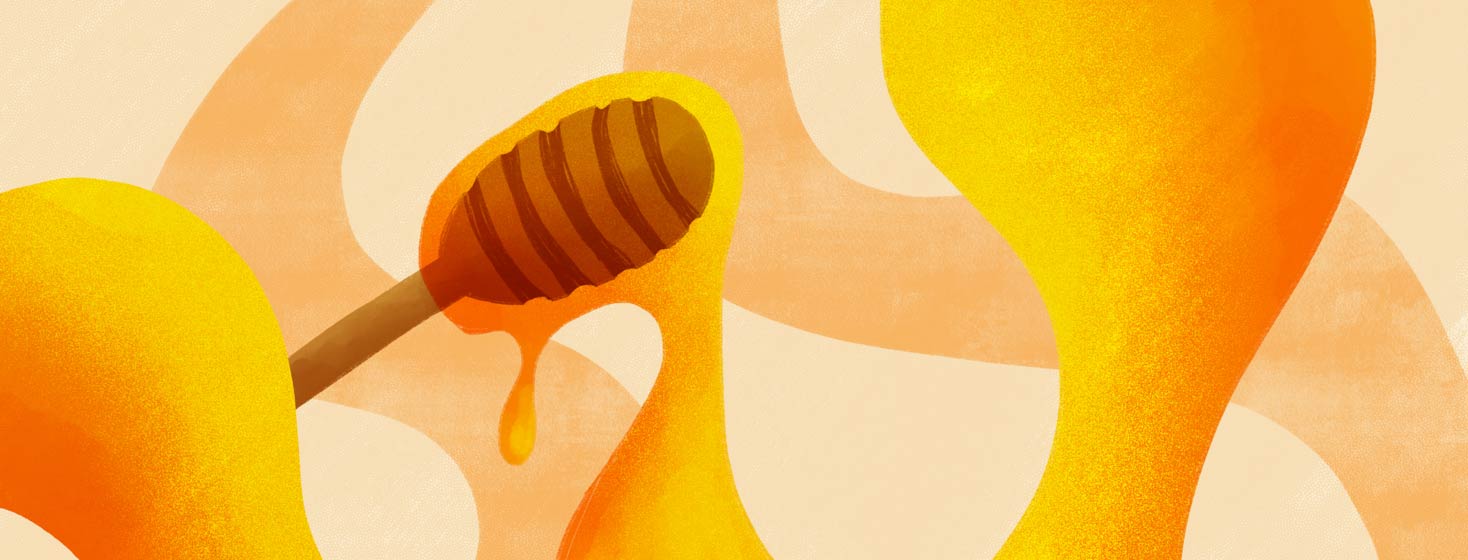Honey: It Tastes Good, But Can it Benefit Asthma?
It’s common to enjoy a dollop of honey in a cup of tea or on top of peanut butter toast, and it’s also becoming a common ingredient in cough drops and over-the-counter medicines. But can honey also be helpful in managing asthma symptoms?
After personally growing up with icky-tasting, powdery asthma medications that my mom had to hide in applesauce, a spoonful of honey would have been the perfect complement to my childhood asthma regimen - but is it too good to be true?
Honey and anti-inflammatory properties
You may be surprised to learn that the connection between asthma and honey isn’t just wishful thinking - researchers have been conducting ongoing studies to observe the effects of honey on asthmatics. Asthma is characterized as a chronic inflammatory disorder of the pulmonary airways. Hyper-responsiveness of the bronchial system and airway inflammation are common asthma reactions, and the benefits of honey are being studied as a possible supplementary solution for asthmatics.
Honey has been shown to exhibit antibacterial, antioxidant, and antifungal properties and also promotes wound healing.1 Recent studies also indicate that honey contains anti-inflammatory properties and could potentially be used as a therapeutic agent for asthmatics.1 In a 2018 experiment using mice and samples of honey from a Gelam tree, the mice that were given honey showed “marked reduction” in the thickening of the airway and in the infiltration of inflammatory cells.1
In other words, there is evidence to suggest a link between honey and inflammation reduction in the airways, but research is ongoing.
Honey and cough reduction
Honey is now an ingredient in most types of cold and cough medications, but is it just a flavoring to cover the medicinal taste, or is there a medical benefit? More studies have been conducted to research what connection, if any, exists between honey and cough reduction, and what’s been found so far is optimistic.
In a study from 2012, 300 children ranging in ages from 1 to 5 years old and who were also experiencing upper respiratory infections showed marked improvement in sleep quality and cough reduction when given honey before bed.2 As coughing can be a symptom of asthma, this research is a positive step forward for the efficacy of honey to help manage symptoms.
Can honey help asthma?
Although the current research does suggest that honey can help manage the airway inflammation and coughing that can accompany asthma, more recent research from 2019 using honey to treat bronchial asthma showed varied and sometimes conflicting results. Both animals and humans were used in this study, and the lung structures of the humans and animals were different, which sometimes made positive results in animals difficult to replicate in humans.3
What this study could conclude is that, although honey alone has not been proven to be successful in treating asthma, honey as a supplement alongside other asthma treatments may have some efficacy in reducing symptoms. Honey is a go-to for me when I’ve got a cold since those symptoms can also trigger my asthma. In addition to my prescribed asthma medication, I use honey cough drops and take a few spoonfuls of local honey to soothe my throat and airway, and now I know why it feels so comforting.

Join the conversation